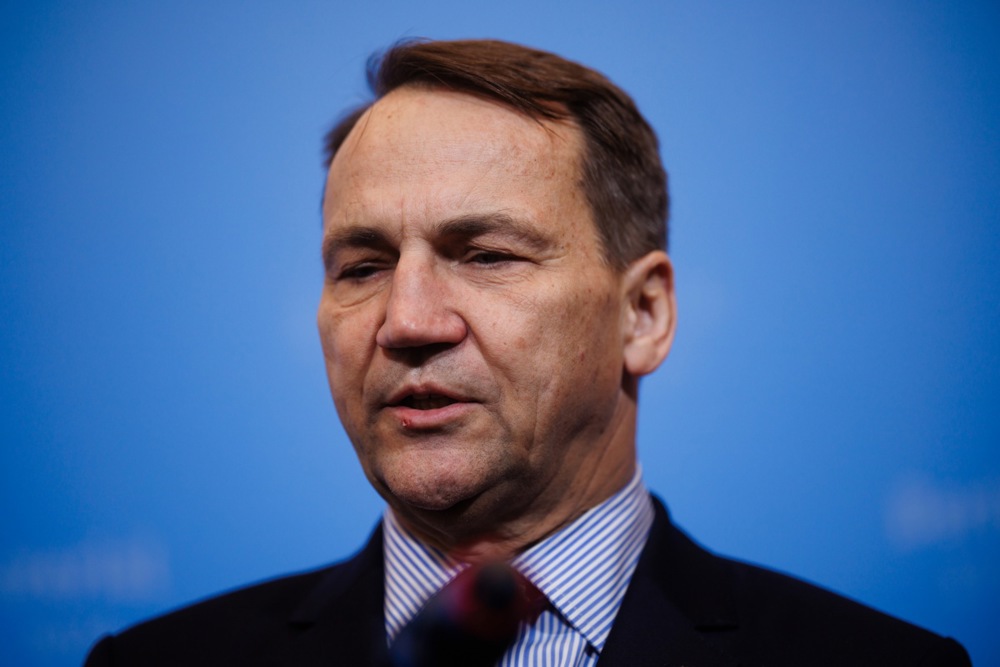Poland could opt for “Pax Americana”, a military and economic alliance with the US, as an alternative to the European Union.
That was according to Jarosław Kaczyński, the leader of Poland’s largest opposition party, the Conservatives (PiS).
In a speech yesterday in Zielona Góra in western Poland, Kaczyński slammed the direction the European Union was taking saying that it was increasingly dominated by Germany and had become a threat to national sovereignty.
“If anyone in this room thinks that anyone other than us, especially Germany, will look after our interests, they are truly extremely naïve. It’s simply childish.
“I know that there were times like this here, the 1990s, when the first European funds and various measures were introduced, which might convince naïve people to think this way,” said the PiS leader.
According to Kaczyński, Poland faces being part of “a fully united Europe under German domination, which practically means the renunciation of our State’s sovereignty”.
He said he did not feel there was much chance of the EU moving away from this model.
“There are countries in the EU that have retained a large part of their sovereignty, such as Denmark and Ireland, but such a situation for all could only be achieved if there were a larger coalition.
“One country, even one as large in Europe as Poland, cannot force something like this,” he explained.
Kaczyński warned that despite the rise of the sovereigntist and patriotic Right, the EU establishment was intent on forcing through its ideas and was doing so by authoritarian means.
“The rebellion evidenced by the rise of the Right is being countered by those who rule Europe with means such as the penalisation of supposed ‘hate speech’, preparation for introducing censorship of online activity and hundreds of millions of euros being spent on promoting left-wing and liberal media,” he said.
He reminded his audience that the Polish centre-left government led by Prime Minister Donald Tusk had prepared draft legislation to implement the EU’s Digital Services Act (DSA). That included provisions for government officials rather than the courts to block materials on the internet.
Such legislation is unlikely to be approved by Poland’s PiS-aligned President Karol Nawrocki. The party, though, fears the government may try to introduce the measure by direct application of the DSA to by-pass the need for legislation on the statute book
Kaczyński argued there was an alternative for Poland other than the EU in the shape of what he called Pax Americana.
“This is the proposal that [US President] Donald Trump presented in his speech at the UN. Pax Americana would be global but it would allow for the existence of sovereign states, including a sovereign Poland, constrained only by demands of joint defence within NATO,” he said.
He said he felt Pax Americana “would be an invincible force, the most powerful in the world, under American leadership”.
Kaczyński admitted, though, that “the path towards it is not as clearly defined as in the case of the EU but it has one obvious and clear advantage, we retain our State and sovereignty”.
This is the closest he has come to stating that PiS would consider having Poland exit the EU.
In the 2003 referendum on Polish accession to the EU, the PiS together with the Catholic Church supported joining the EU.
Since then, though, the party has been sceptical about further European integration such as that exemplified by the Lisbon Treaty, which introduced qualified majority voting on most areas of EU competence.
The PiS has clashed with the EU mainstream on issues such as migration, the Green Deal and increasing the scope for intervention of the European Commission and the European Court of Justice over domestic affairs.
In the European Parliament, the PiS was one of the founding members, along with the British Conservatives, of the European Conservative Reformists (ECR), an alliance that today includes Italian Prime Minister Giorgia Meloni’s Brothers of Italy ruling party.
The PiS has at times co-operated on opposing further integration of the EU with Hungarian Prime Minister Viktor Orbán, who has said he could not rule out Hungary leaving the EU.
The Polish party, though, has disagreed with Orbán’s stance on the war in Ukraine and it did not join the European Patriots EP grouping he initiated, preferring to stick with the ECR.





